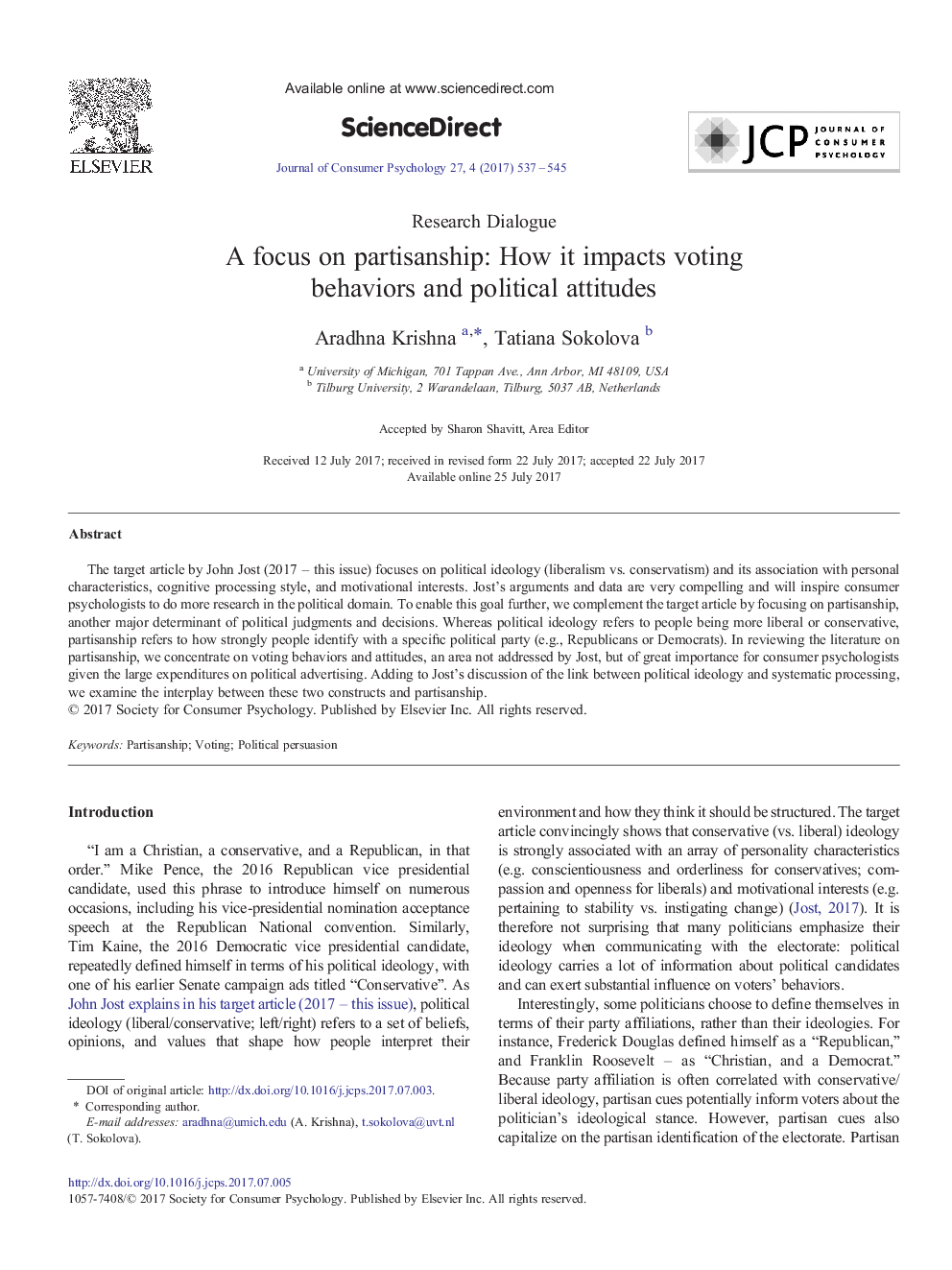| کد مقاله | کد نشریه | سال انتشار | مقاله انگلیسی | نسخه تمام متن |
|---|---|---|---|---|
| 5034228 | 1471566 | 2017 | 9 صفحه PDF | دانلود رایگان |
The target article by John Jost (2017 - this issue) focuses on political ideology (liberalism vs. conservatism) and its association with personal characteristics, cognitive processing style, and motivational interests. Jost's arguments and data are very compelling and will inspire consumer psychologists to do more research in the political domain. To enable this goal further, we complement the target article by focusing on partisanship, another major determinant of political judgments and decisions. Whereas political ideology refers to people being more liberal or conservative, partisanship refers to how strongly people identify with a specific political party (e.g., Republicans or Democrats). In reviewing the literature on partisanship, we concentrate on voting behaviors and attitudes, an area not addressed by Jost, but of great importance for consumer psychologists given the large expenditures on political advertising. Adding to Jost's discussion of the link between political ideology and systematic processing, we examine the interplay between these two constructs and partisanship.
Journal: Journal of Consumer Psychology - Volume 27, Issue 4, October 2017, Pages 537-545
